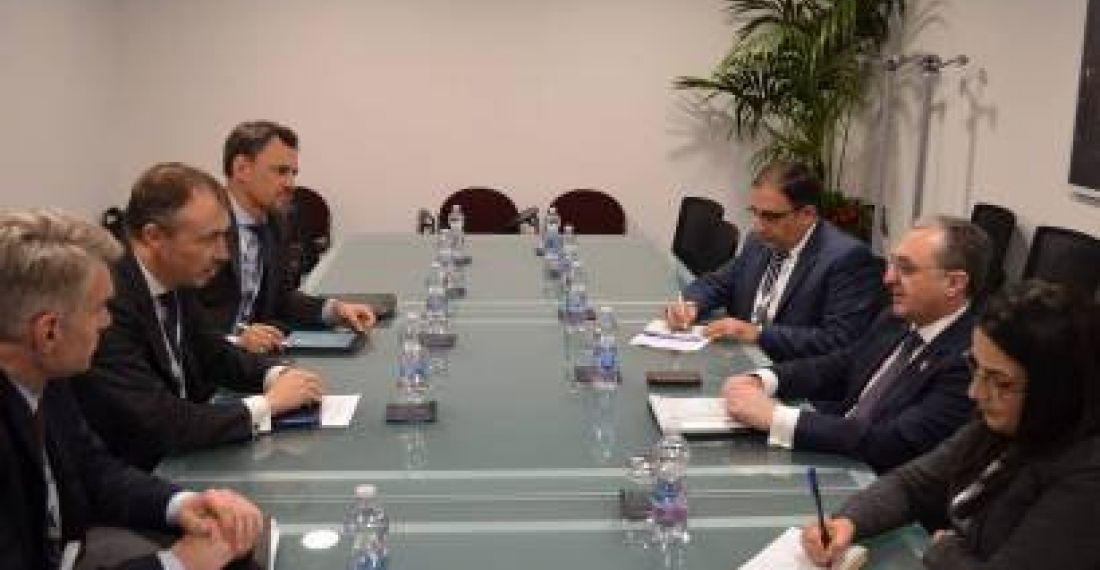The European Union Special Representative for the South Caucasus, Toivo Klaar, met with Armenian foreign minister Zohrab Mnatsakanyan in Milan on Friday (7 December), on the margins of the 25th session of the OSCE Ministerial Council taking place in the Italian city.
Armenian media said that foreign minister Mnatsakaryan in his conversation with the European envoy urged international partners to restrain from any actions that could contribute to instability and the arms race in the region.
Earlier, the EU envoy also met with the foreign minister of Azerbaijan. Elmar Mammadyarov.
related content: EU envoy discusses Karabakh with Azerbaijan foreign minister
related content: Foreign Ministers of Armenia and Azerbaijan and OSCE Minsk Group chairmen issue joint statement
source: commonspace.eu
photo: EUSR Toivo Klaar, met with Armenian foreign minister Zohrab Mnatsakanyan in Milan on Friday (7 December),






